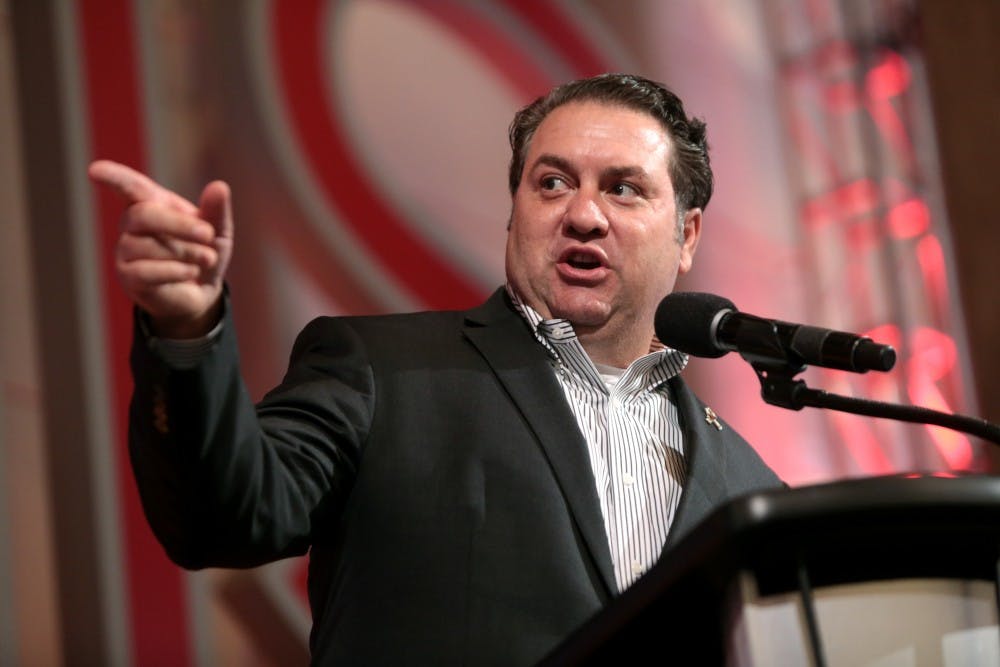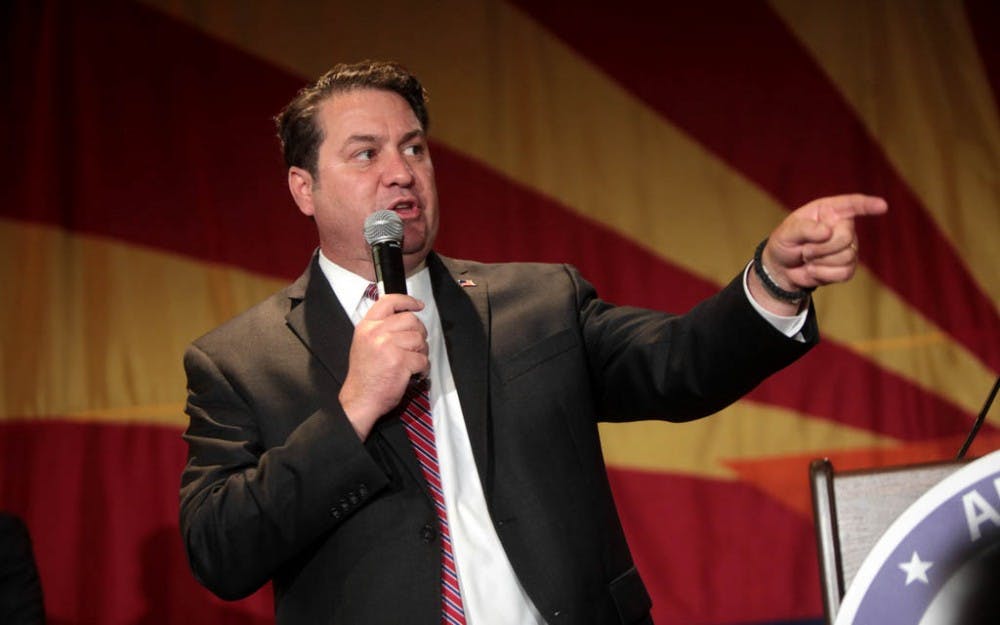The City of Tempe and Attorney General Mark Brnovich settled out of court on June 26 over what may have been an illegal property tax scheme. The settlement brings to an end a saga that started in 2017 and involved the state legislature, the city, the attorney general and, recently, the Arizona Supreme Court.
Read more: Attorney General Brnovich and City of Tempe settle lawsuit over property taxes
The story revolves around how Tempe chose to apply a controversial form of property tax break to developers in an effort to attract businesses and jobs. Below is a chronological summary of events from the beginning to the present, just over a week after the city and the attorney general came to an agreement out of court.
How it started
On November 30, 2017, State Representative Vince Leach, R-Tucson, wrote the Tempe City Council and Mayor Mark Mitchell requesting an end to two instances of the city’s use of the government property lease excise tax, both of which he claimed were “in violation of state law.”
“First, the property tax incentives offered for the Graduate Hotel and the Bank of the West/Fountainhead are disallowed by Arizona Revised Statutes (A.R.S.),” Leach wrote in his letter. “Second, the attempts to use such Government Property Lease Excise Tax (GPLET) rates were not vetted by the Arizona Department of Revenue (DOR) as required by state law.
“Finally, there is no legal basis for beginning a new GPLET lease for the Graduate Hotel in year 47 of the statutorily-allowed 50 years.”
The GPLET is an excise tax that can be applied instead of the regular property tax when land is leased by a municipality (such as the City of Tempe, for example) to a private developer. The GPLET is almost always lower than what the usual property tax would be and is used as an incentive to draw developers to the city.
The city claims the GPLET helps bring economic development to Tempe, thereby giving it a leg up in terms of high-paying jobs and strengthening the service sector. The City of Tempe has pointed to a number of what they believe to be success stories.
The tax is not without controversy, however, as even when legally proper, its use has been criticized by anti-gentrification voices and those who think the GPLET encourages the normalization of municipal tax breaks, which in excess can be detrimental to the city’s revenue stream.
This latest controversy over the possible misuse of the GPLET comes on the heels of increasing criticism.
The investigation
On January 2, 2018, Leach filed a petition to Attorney General Mark Brnovich requesting an investigation into the legality of the city’s tax scheme.
Any member of the state legislature is able to file such a petition under a 2016 law, SB 1487, which forces the attorney general to investigate “any ordinance, regulation, order or other official action” taken by a municipality that the representative alleges to be illegal.
In other words, Brnovich was required by state law to investigate Leach’s claim that Tempe misused the GPLET.
The investigation concluded that only one property of the two Leach alleged — The Graduate Hotel, which is on ASU-owned property — was definitely legal, according to the attorney general. The legal status of the GPLET applied to the Bank of the West development is unclear.
The legality of the GPLET rate boils down to an ordinance passed by the Tempe City Council. According to the city, “Ordinance 48” allows Tempe to grandfather in the old GPLET rate, which was raised by the state legislature in 2010.
Using the old GPLET rate would mean the The Graduate pays a lower tax rate. The question is whether Ordinance 48 is even legal. The City of Tempe has maintained that it is, but the attorney general said the legality of the ordinance is unclear.
The lawsuit
To settle the legality of Ordinance 48 and to determine whether Tempe can use the old GPLET rate for future developments, Brnovich filed a lawsuit against Tempe in the Arizona Supreme Court on May 24, 2018.
“The City of Tempe needs to be held accountable for not following state law,” Brnovich said in a statement. “Deals like this unfairly shift the tax burden to other hardworking taxpayers. I am asking the Supreme Court to act to prohibit future illegal use of these old tax rates that were rejected by our legislature 8 years ago.”
The attorney general's office made clear the lawsuit was pressing because of deals Tempe had made with developers that would use the grandfathered GPLET rate in the same manner as it had been used for the Bank of the West development.
"An Arizona Supreme Court ruling is important because the Attorney General’s Office recently learned of two additional development agreements approved by Tempe that are set to impose the prohibited tax rate," the attorney general's office said. "The deals are moving forward despite the Attorney General’s SB 1487 investigative report and warnings given to Tempe concerning its likely violation of state law."
The settlement
On June 26, 2018, the City of Tempe and Attorney General Mark Brnovich reached an agreement in which Tempe is not permitted to apply the post-2010 GPLET rate to any future developments. This effectively puts an end to the interpretation of Ordinance 48 that says the city can grandfather the old GPLET rate for select properties.
However, the agreement means the legality of Ordinance 48 has not been determined.
Tempe released a statement announcing the settlement and defending their use of the GPLET generally.
"Each potential use of the GPLET is carefully evaluated based on the impact of the project, its value to the city, job creation, possible tax revenues, public parking and more," City of Tempe Spokesperson Nikki Ripley wrote in the statement. "In each case, a GPLET is offered only if the city has established, by examining a project’s financials, that it would not otherwise be able to be built without the incentive."
The two development agreements that were going to receive the old GPLET rate are now being renegotiated by the city as part of the settlement. One of those is the hotly anticipated Whole Foods on University Drive.
None of the businesses in question throughout this case faced any threat of legal action as they relied on the city in good faith.
Reach the reporter at parker.shea@asu.edu or follow @laconicshamanic on Twitter.
Like The State Press on Facebook and follow @statepress on Twitter.





